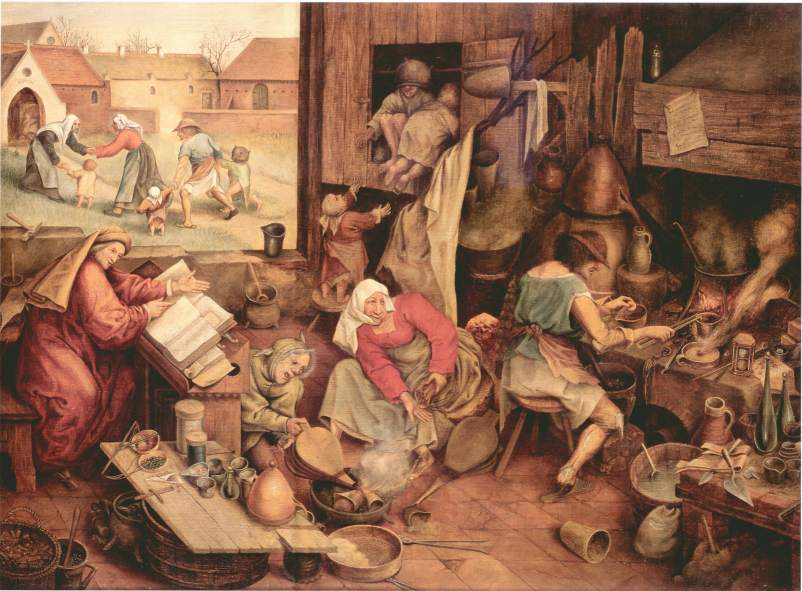

| Faust |  |
||
|---|---|---|---|
This is the story of selling your soul for material gains; or by translation short term tangible benefits are exchanged for nearly or even eternally adverse consequences. |
|||
| Faustian bargain | 
|
||
| Johann D. Faustus, it is said, was a necromancer and a conjurer. His life was explored in written script, as opposed to folk tales, during the Renaissance, in the late 1580s and 1590s, throughout northern Europe. Notice that this spread of the Faust fables happened after the Lutheran split with the Roman Church–The Reformation–and during the wars of religion and the Peasants war that decimated Central Europe, leaving northern German city states protestant and leaving Bavaria, Austria and southern German provinces and city-states Roman Catholic. | |||
The story is an example of the imaginative dimension of technology, because this historical renaissance in Europe brought with it the introduction of Chinese, Hindi, and Islamic inventions. These introductions included mathematics, manuscripts and machinery that --though very impressive in design and execution-- seemed to convey greater powers to their owners and mechanics than simple agrarian people could ever imagine. |
|||
The German and later British legends of Faust center on a medieval scholar and figure of great learning. Very little else is really known of his life that has become for us now a significant legend.
The importance of his story lies with three significant themes. Those themes are: the heresy of knowledge, the simplistic desire for truth, and the ambiguity of the human desire for control over the forces of nature.
Johann Faustus was born in Roda in the province of Weimar, of God-fearing parents.
Although he often lacked common sense and understanding, at an early age he proved himself a scholar, mastering not only the Holy Scriptures, but also the sciences of medicine, mathematics, astrology, sorcery, prophesy, and necromancy.
These pursuits aroused in him a desire to commune with the Devil, so--having made the necessary evil preparations--he repaired one night to a crossroads in the Spesser Forest near Wittenberg.
Source: Abstracted from Historia von D. Johann Fausten (Frankfurt am Main: Johann Spies, 1587).
For this and other Faust stories see: http://www.pitt.edu/~dash/faust.html#1587
Shortly after the History of D. Johann Faust appeared in Germany, the English play write, Christopher Marlowe wrote "The Tragic History of Dr. Faustus."
Christopher Marlowe. The Tragical History of D. Faustus (1604).
for the electronic version see this site, http://www.perseus.tufts.edu/Texts/faustus.html
Tufts has reproduced the "Faust Book" as an electronic compendium on all things Faustian.
A "Faustian bargain" is an agreement one makes with destiny, or something you cannot control. In the middle ages the concept of evil was represented by a pact with the devil, Mephisto, to accomplish, otherwise inhuman powers. Often the Faust story is seen as trading one's innocence for knowledge of the occult, the forbidden, and the horrible.
![]()